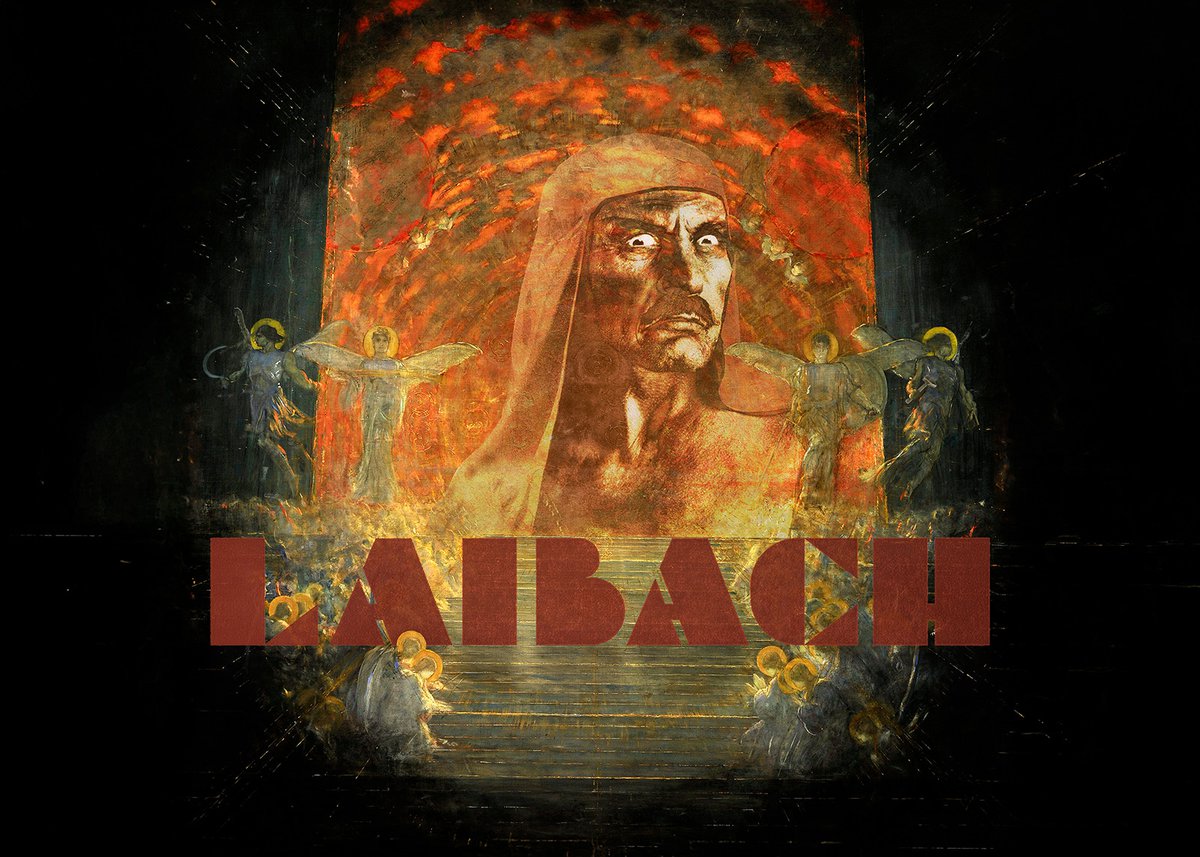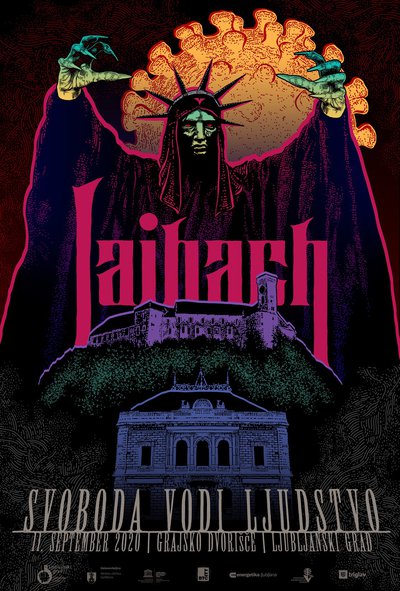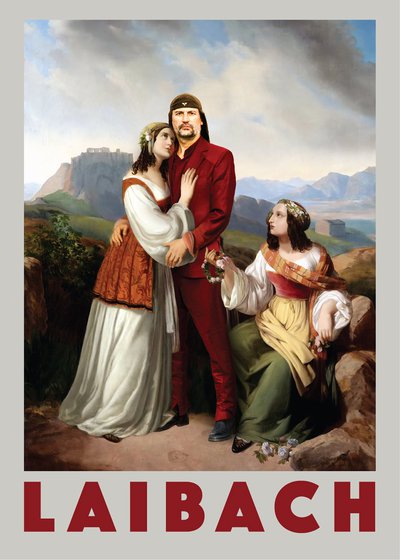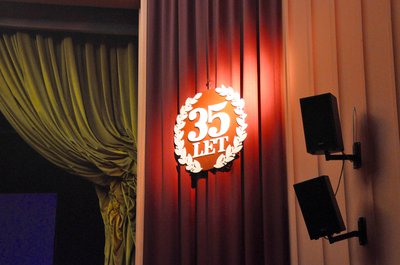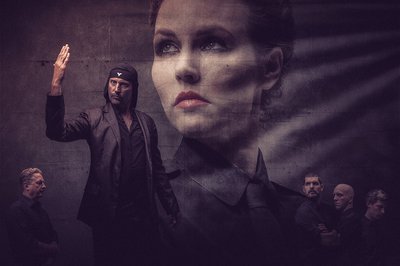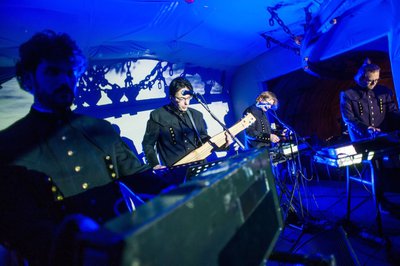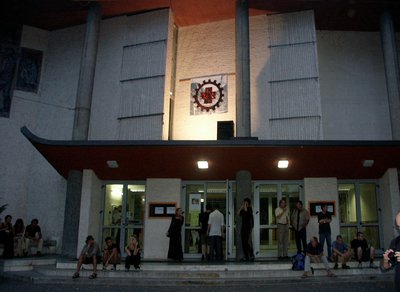When Laibach visited Athens earlier this year, they spoke to the city four times. With some help from nskstate.com, they granted interviews to three of Greece’s major news outlets — LiFO, News247, and Efsyn — as well as the independent underground fanzine Lung. Four publications, four conversations, four mirrors — each portraying Laibach from a different perspective, yet all echoing the same image: ideology, power, history, and art intertwined in eternal repetition.
What follows is a curated selection of questions and Laibach’s own responses from these interviews — fragments of manifestos, provocations, and warnings. Together, they form a mosaic of thought, an affirmation of Laibach’s approach: not to explain, but to reveal; not to provide answers, but to sharpen the questions.
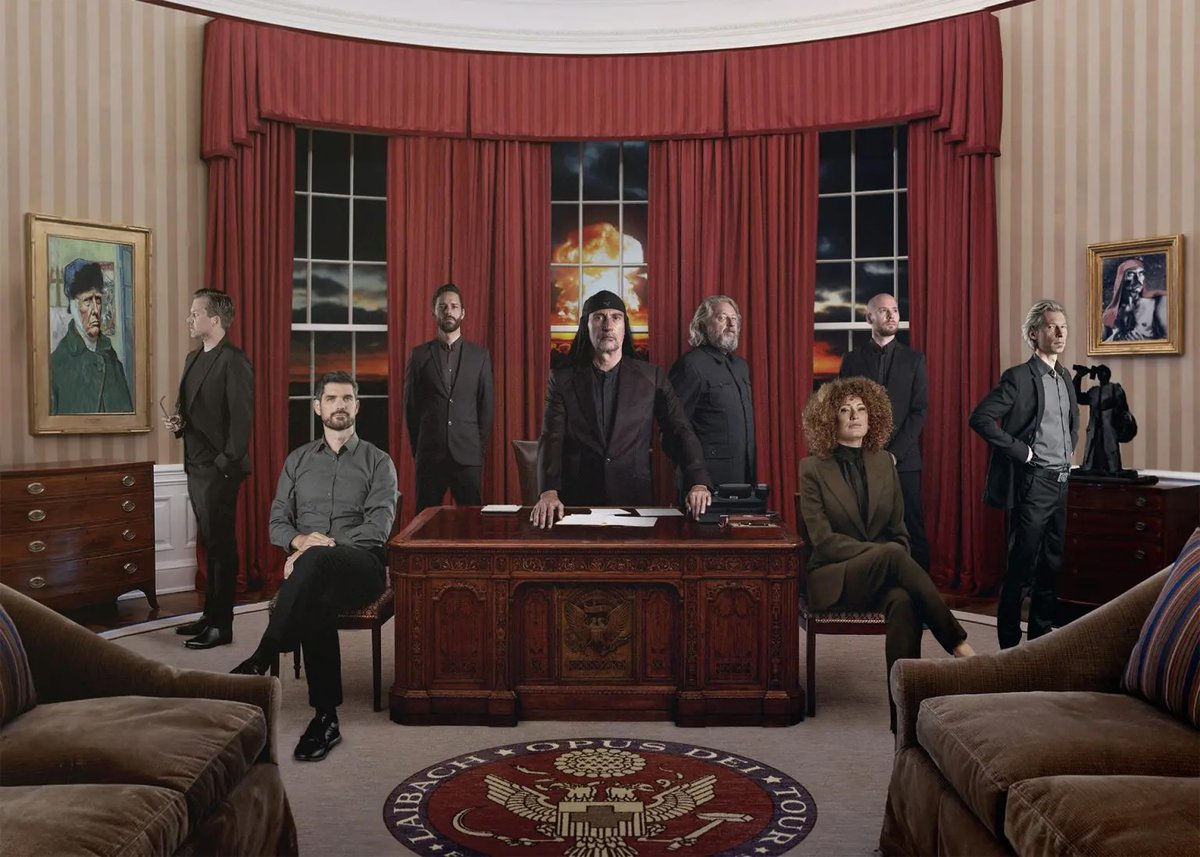
Q (Efsyn): You are reissuing Opus Dei almost 40 years later. Do you feel it is still relevant?
Laibach: ““Opus Dei was never just an album – it was a statement, a provocation, and a manifesto. Almost forty years later, it remains all of those things, but now it is also an artifact of history. The world has changed, but the mechanisms of power, ideology, and mass manipulation remain the same – even the symbols are not much different. In that sense, Opus Dei is still relevant, perhaps even more so. The reissue is not a nostalgic act; it is a reminder that history repeats itself, often in louder and more absurd ways. The album was also the first time we entered the international market with force. It opened many doors for us and many controversies, and now it returns not as a museum piece but as a mirror.”
Q (News247): Why such a provocative title, given the Catholic organization?
Laibach: “Opus Dei in Latin means ‘work of God’, something big and grandiose. It was also a reinterpretation of the song Live is Life by the Austrian band Opus, and of course the Catholic organization — which, like Laibach, is criticized for secrecy, extremism, and political influence. We were playing with layers of meaning, from pop to politics to religion, showing that the same mechanisms apply everywhere. At the time, many accused us of blasphemy or manipulation, but in reality we were only showing how ideology functions.”
"True provocation is not about shock value but about challenging perception, ideology, and the illusions of freedom."
Q (Efsyn): Do you still want to be a provocative band
Laibach: “We were never ‘provocative’ in the way the media understands it. We are only the messengers – don’t kill us. True provocation is not about shock value but about challenging perception, ideology, and the illusions of freedom. If our work still provokes, it only means that the world still has a chance to learn its lesson. If people stop being provoked by us, it will mean that the world has become truly cynical — or that Laibach has become irrelevant.”

Q (Lung): Are our times now too absurd for satire?
Laibach: “The world no longer needs satire; it satirizes itself perfectly well. If satire fails, it is not because the times are too absurd – it is because satire is no longer radical enough. At such moments, something more than satire is needed: a weapon, a virus, or a mirror so highly polished that it blinds. Over-identification has always been our strategy — we take ideology more seriously than its believers do, and in that way we reveal its emptiness. Satire laughs at power, but over-identification shows that power is already a parody of itself.”
"We do not play with symbols of totalitarianism; we define them"
Q (News247): What do you want to achieve with totalitarian symbols?
Laibach: “Laibach is not the messenger, it is the message per se. We do not play with symbols of totalitarianism; we define them. Our aesthetics reveal the mechanisms of ideology, stripping them bare so they may be seen for what they are — empty forms ready to be filled with whatever content the system requires. The swastika, the hammer and sickle, the NATO emblem — all of them function the same way once detached from their historical moment. We don’t decorate with these symbols; we show them as operating systems.”
"Our function is not to give moral lessons but to demonstrate the functioning of authority”
Q (News247): Are you anti-authoritarian?
Laibach: “Laibach is not against authority. We are merely its reflection and its shadow. Our role is to push ideology to its extreme until it reveals itself. We can be everything you fear and everything you desire. Any interpretation of Laibach is correct. But the most correct understanding is to misunderstand Laibach entirely. People who say we glorify power are correct, and people who say we critique power are also correct. Our function is not to give moral lessons but to demonstrate the functioning of authority.”
“War never goes out of fashion. It is the ultimate product of civilization"
Q (Efsyn): Is there a future for Europe?
Laibach: “Europe, like all great ideas, is both eternal and doomed. It is a continent built on contradictions – civilization and barbarism, unity and division, war and peace. Empires fall, borders shift, ideologies collapse, but Europe – like Laibach – must reinvent itself, whether for better or worse. Except it will not be difficult to change for the worse. The European Union is not really Europe, it is just one of Europe’s many projects, and it can fail like all the others. But Europe as a concept, as an idea, will persist. That is both its strength and its tragedy.”
Q (LiFO): Many people are nostalgic for Yugoslavia. Do you share that sentiment?
Laibach: “If the theory of self-management and brotherhood in Yugoslavia had really worked, it would have been the best country in the world. Since it did not, nothing remains except bittersweet nostalgic memories. Yugoslavia is a special imaginary place where we were born and formed. Without it, there would be no Laibach. Of course, nostalgia is dangerous, because it beautifies the past and erases its failures. But we cannot deny that Yugoslavia gave us both our identity and our trauma. Today, we see it as a lesson in what could have been.”
"Art thrives in contradiction, in those places where its presence is already a scandal"
Q (LiFO): Does your album NATO remain relevant today?
Laibach: “War never goes out of fashion. It is the ultimate product of civilization, the purest form of political discourse, and the most effective method of redistribution. NATO, as we interpreted it, was not only about the alliance itself but about the permanence of conflict and the way war organizes the world. When we performed the album in the 1990s, it was a warning. Today it reads almost like prophecy. Nothing has changed — only the names and geographies of the conflicts. The same logic applies, and that is why NATO never loses its relevance.”
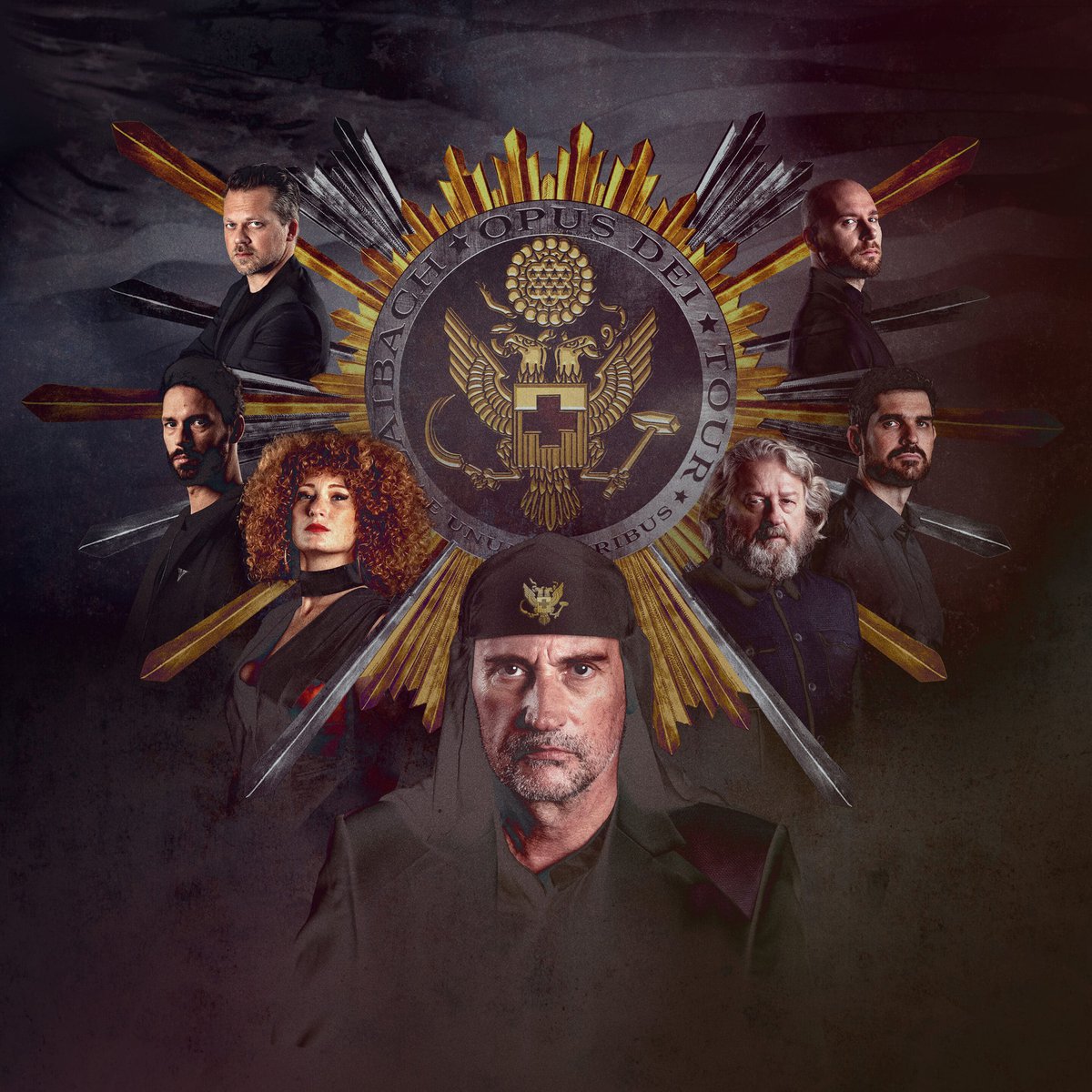
Q (Lung): Could Laibach ever be “cancelled”?
Laibach: “We tend to get the most censorship where, by definition, it should not exist – in the cultural-artistic scene and the music industry. We have been banned in communism and capitalism, on the right and on the left. Art thrives in contradiction, in those places where its presence is already a scandal. Cancellation is nothing new to us — only the terminology has changed. What matters is not whether we are banned, but why we are banned, and who benefits from silencing us.”
‘Nothing is real, everything is permitted’ is no longer medieval mysticism but the principle of social media"
Q (LiFO): What about your concert in North Korea?
Laibach: “Our concert in North Korea was not endorsement or opposition; it was art functioning precisely because the context made it impossible. In Pyongyang, even playing a pop song like The Sound of Music becomes a political act, because the context transforms it. That is exactly where Laibach belongs — in impossible situations, where art exposes ideology by existing at all. North Korea did not change us, and we did not change North Korea, but the concert showed what art can do when placed in a situation where it is least expected.”
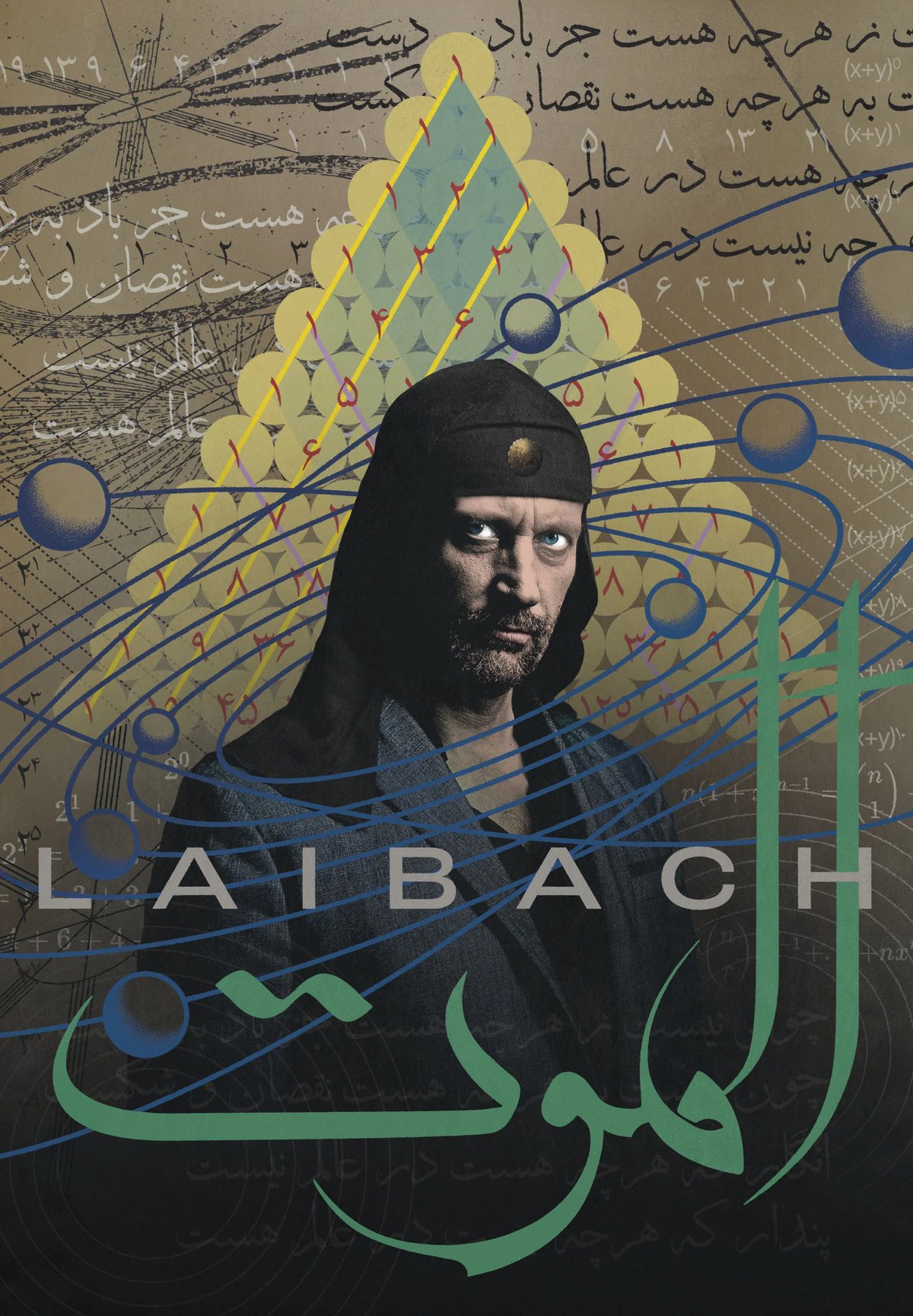
Q (Lung): Why did you choose to adapt Alamut?
Laibach: “Alamut is very relevant today. ‘Nothing is real, everything is permitted’ is no longer medieval mysticism but the principle of social media, where we surrender reality for the pleasures of virtual paradise. Our Alamut could easily be dedicated to Elon Musk, or to any of the techno-prophets who promise us salvation through machines while delivering us deeper into manipulation. The novel is about power, deception, and faith, and all of these are central to the 21st century. We found in it a mirror of our own time.”
"Athens is every city, and every city is Athens."
Q (Efsyn): Do you feel the love of the Greek audience?
Laibach: “Yes, we feel the love of the Greek crowd. And like true Balkan romantics, we accept it with discipline. Greece has always been generous to Laibach, and we do not take that for granted. We return the love with equal intensity — in the only way Laibach knows how.”
Q (LiFO): What are your memories of Athens?
Laibach: “Athens is every city, and every city is Athens. We even support Josef Plečnik’s idea to create a Slovenian Athens in Ljubljana. Athens is more than a city; it is a symbol, a stage where democracy, tragedy, and ideology were all invented. Laibach belongs to Athens, and Athens belongs to Laibach. Every time we return, we feel we are not visiting but re-enacting history.”
Q (Lung): How do you see Greece in relation to Europe?
Laibach: “Greece, like Laibach, belongs to no single category and yet to all of them. It is Balkan, Mediterranean, European, and beyond – a birthplace of democracy and tragedy, a crossroads of empires and ideologies. Without Greece, there would be no Europe. And without contradictions, there would be no Greece. That is why Greece feels close to us — because we too exist in contradictions.”
“Stay human.”
Q (Efsyn) After so many decades, what do you feel Laibach have achieved?
Laibach: “We have achieved nothing yet. The march continues.”
Q (Lung): A final message to humanity?
Laibach: “Stay human.”
